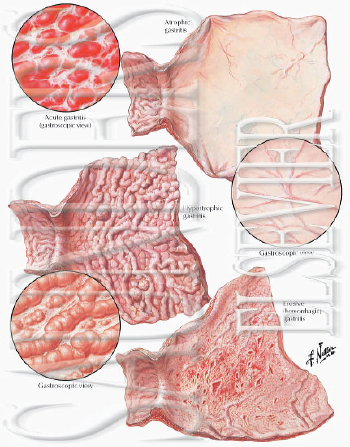How to cope with hyperacidity?
By risk_taker20
@risk_taker20 (2096)
Philippines
December 11, 2006 7:29pm CST
Few years back I was diagnosed with gastritis that is causing me with severe hyperacidity from time to time. This is my problem for quite sometime now which I don't know how will I ever get over and totally be treated.
I am taking nexium and novaluzid, both astrazeneca branded.
Take note of this:
Gastritis isn't one disease but a group of conditions, all of which are characterized by inflammation of the lining of your stomach. Commonly, the inflammation results from infection with the same bacterium that causes most stomach ulcers. Yet other factors — including traumatic injury and regular use of certain pain relievers — also can contribute to gastritis.
In spite of the many conditions associated with gastritis, the signs and symptoms of the disease are very similar: A burning pain in your upper abdomen and occasionally, bloating, belching, nausea or vomiting.
In some cases, gastritis can lead to ulcers and an increased risk of stomach cancer. For most people, however, gastritis isn't serious and improves quickly with treatment.
Signs and Symptoms:
The signs and symptoms of gastritis, which are often relatively mild and short-lived, include: * A gnawing or burning ache or pain (indigestion) in your upper abdomen that may become either worse or better when you eat
* Nausea
* Vomiting
* Loss of appetite
* Belching or bloating
* A feeling of fullness in your upper abdomen after eating
* Weight loss
Gastritis that occurs suddenly (acute gastritis) usually results in the classic combination of nausea and burning pain or discomfort in your upper abdomen, whereas chronic gastritis, which develops gradually, is more likely to cause a dull pain and a feeling of fullness or loss of appetite after a few bites of food. For many people, though, chronic gastritis causes no problems at all.
Occasionally, gastritis may cause stomach bleeding, but it's rarely severe unless there's also ulceration of your stomach lining. Bleeding in your stomach can cause you to vomit blood or pass black, tarry stools and may require immediate medical care.
Because gastritis is one of many common digestive problems with similar signs and symptoms, it's easy to confuse with other conditions, including: * Gastroenteritis. Also called stomach flu, gastroenteritis usually results from a viral infection of your intestines. Signs and symptoms include diarrhea, abdominal cramps, and nausea or vomiting, as well as indigestion. Symptoms of gastroenteritis often resolve within a day or two, whereas the discomfort of gastritis may be ongoing.
* Heartburn. This painful, burning sensation behind your breastbone usually occurs after a meal. It develops when stomach acid backs up into your esophagus, the tube that connects your throat to your stomach. Heartburn can also lead to a sour taste and the sensation of partially digested food re-entering your mouth.
* Stomach ulcers. If a gnawing or burning pain in your stomach is persistent and severe, you may have an ulcer. Stomach (peptic) ulcers are open sores that develop on the inside lining of the stomach. The most prominent symptom is pain, which is frequently worse at night or when your stomach is empty. Gastritis and stomach ulcers share some of the same causes — especially H. pylori infection — and the one may be a precursor to the other.
* Nonulcer dyspepsia. Commonly referred to as indigestion, nonulcer dyspepsia is a functional disorder and not necessarily related to a particular disease. The exact cause isn't known, but stress and overindulging in fried, spicy or fatty foods can aggravate or trigger the upper abdominal pain, bloating, belching and nausea that characterize the condition.
1 response
@Ivan_Karlo (1)
•
25 Jan 11
hi. i am a ivan from the philippines. i am a student and i am having a research paper about my hyperacidity or gastritis. i was hoping if you could share more about your story for i think it is relevant.thank you .





